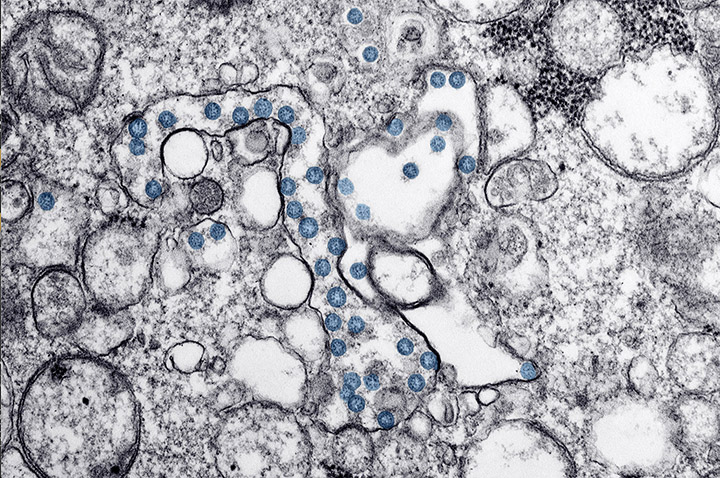UK study will deliberately infect humans with SARS-CoV-2 to determine the minimum viral load needed to cause infection and to further vaccine research
The United Kingdom (UK) Department for Business, Energy and Industrial Strategy is launching a new COVID-19 study that is the first of its kind. This study involves deliberately exposing previously uninfected volunteers to the SARS-CoV-2 virus in a controlled manner to increase the understanding of how this virus affects individuals.
The study will be performed on up to 90 volunteers who all must be healthy 18- to 30-year-olds. The study will only use healthy and young adult volunteers to reduce the potential of complications, as these volunteers fall into the lowest risk category for developing severe COVID-19 symptoms.
SARS-CoV-2 Virus Characterization Study to Aid Vaccine Research
This study is being called a “virus characterisation study,” and one of its main purposes seems to be establishing the smallest viral load needed to cause infection. The volunteers for this study will be carefully monitored in a controlled environment with access to any treatments they will need. Researchers will be able to monitor the volunteers as infections develop, allowing for better insights of disease progression in these individuals.
There has been considerable interest in the implications of the role that viral loads play in the severity of infection and the contagiousness of SARS-CoV-2 (See Laboratory Expert Identifies Viral Load and Co-Infections as Commonly Overlooked Tests for COVID-19 Patients). Research has shown that the viral load in patients with COVID-19 has been decreasing over time and that there has been a decrease in disease severity that correlates with this decrease in viral load (See SARS-CoV-2 Viral Load in Patients Seems to Be Decreasing Over Time New Research Shows).
Researchers anticipate that the study will lead to better guidance in the continued development of vaccines. “Researchers and scientists around the world have made incredible progress in understanding Covid-19 and developing critical vaccines to protect people,” said Kwasi Kwarteng, PhD, Secretary of State for Business, Energy and Industrial Strategy, as part of a UK-government press release.
“While there has been very positive progress in vaccine development, we want to find the best and most effective vaccines for use over the longer term,” Kwarteng explained. “These human challenge studies will take place here in the UK and will help accelerate scientists’ knowledge of how coronavirus affects people and could eventually further the rapid development of vaccines.”
Human Challenge Studies Are Not New
The study is backed by an investment from the UK government of £33.6 million ($46.9 million) and is expected to begin sometime in March. The study will use a known strain of SARS-CoV-2 that has been shown to be of low risk in the populations that are being asked to volunteer for the research program.
“Over many decades, human challenge studies have been performed safely and have played important roles in accelerating the development of treatments for diseases including malaria, typhoid, cholera, norovirus and flu,” says the statement put out by the UK government. “The trials have also helped researchers establish which possible vaccine is most likely to succeed in phase 3 clinical trials that would follow, usually involving thousands of volunteers.”
While a study that deliberately infects people with SARS-CoV-2 certainly carries some risks and some controversy, the data that it will yield about how the viral load impacts both disease course and infectivity will be invaluable. Clinical laboratories that perform PCR testing can easily analyze the viral load, and the additional clinical data this provides may have more value as the results of new research continue to be released.

—By Caleb Williams, Editor, COVID-19 STAT
Related Resources:
UK Government: World’s first coronavirus Human Challenge study receives ethics approval in the UK






